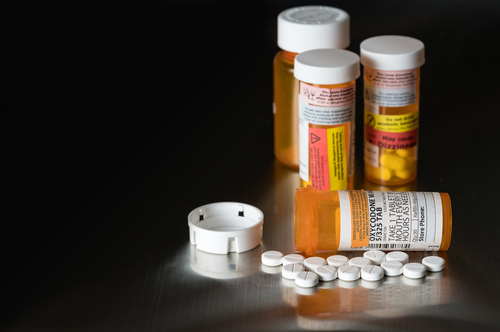
80% of physicians on Sermo say they regularly see ads for medical products, and 49% believe they cause harm by creating patient misunderstandings.1 So, what does this mean for patient care, and how does it shape clinical conversations?
Direct-to-consumer (DTC) advertising of prescription and non-prescription medications has long been controversial. While some argue it encourages patient empowerment and awareness, others say it fuels confusion, increases physician workload and distorts expectations.
Through recent polls and candid commentary from doctors on Sermo, this article explores how medical professionals really feel and what they believe should change.
Medical advertising is in most places, but should it be?
From medication advertisements on TV to magazine spreads, direct-to-patient advertising has become hard to ignore. 69% of physicians on Sermo say the volume of DTC advertising has significantly increased in recent years, with 80% reporting regular exposure across both print and digital media.1 But does visibility translate to value?
Some doctors argue that advertising opens useful conversations. “Advertisements help open up a dialogue between patients and physicians,2” said a Sermo member and family medicine physician. “It helps them play a more active role… working with us to come up with a plan they can stick to.”
Others believe the increase has led to a fundamental breakdown in how patients approach care. “It drives patients to demand specific products from their docs, which often aren’t the proper management for their individual needs,2” said an Anesthesiologist. “It wastes valuable clinic visit time and tends to undermine doctor–patient relationships.”
While 22% noted only a slight increase in ads,1 even among this group, the division is clear. One GP noted the potential for increased awareness and innovation, but an OB-GYN physician raised concerns about clinician stress: “Direct-to-consumer advertising raises the cost of medications and treatments and adds to the workload of physicians. There may be a little benefit to patients knowing about such innovations, but I see the frustration and harm as much more significant.2”
Other physicians, particularly those in regions where prescription medical advertising is tightly regulated or prohibited, highlighted a different experience. “In my country [Spain], medication advertising only applies to certain conditions such as cough syrups or melatonin,” said one GP. “It’s very regulated here.2”
While medical advertising is increasingly widespread, many physicians question whether its growing presence adds value or simply adds confusion and strain to clinical care.
Common drug advertising themes: weight loss, chronic illness and confusion
A wide mix breeds confusion
For the largest group of physicians (34%),1 no single type of product ad dominates, but the variety itself can be overwhelming.
One Sermo member and GP sees this as the power of mass media to inform quickly, calling TV and radio a “very effective method for people to quickly inform and learn about all these medications, devices and vaccines that are available in the health area.2”
A Psychiatrist agrees with caution, pointing out that patients may misinterpret drug information and push for inappropriate medications: “The patient may feel validated by the direct-to-consumer advertising, though unaware of how a medication may interact with other prescribed medications or contraindicated in certain medical conditions.2”
Many physicians on Sermo worry that the scale of medical advertising overwhelms patients with complex or misleading information that’s difficult to interpret without clinical guidance.
Weight loss takes centre stage
For nearly a third of physicians on Sermo (31%),1 weight-loss products dominate the advertising landscape.
One Internal Medicine specialist notes seeing ads “on a daily basis,2” often accompanied by promotions for cancer and rheumatologic medications. This visibility reflects public demand, but also raises concerns about credibility and evidence.
As a Pathologist on Sermo observes, many of these ads promote supplements with little scientific backing. The result, they warn, is a public more influenced by marketing than medicine, taking the adverts “hook, line and sinker.2”
The dominance of weight-loss product ads raises concerns among doctors about unproven claims, vulnerable audiences and the growing gap between consumer perception and medical evidence.
Chronic disease treatments are widely pushed
Direct-to-patient marketing for long-term conditions, such as heart failure, chronic obstructive pulmonary heart disease and diabetes, is another major theme, seen by 23% of physicians on Sermo.1 One Family Medicine doctor recognises the prevalence of these ads—“On television, you see many advertisements for medications2”—suggesting they reflect the real-world burden of disease.
Yet this visibility also carries risks. An Anesthesiologist notes that aggressive promotion can encourage patients to “purchase medications that aren’t necessary and may have side effects.2”
It’s a tension between raising awareness and inadvertently promoting overmedication.
Vaccine ads spark mixed reactions
Vaccine advertising remains a smaller category of concern for 5% of polled physicians,1 but a polarising one.
While an Oral & Maxillofacial Surgery specialist sees value in raising awareness about immunisation because “vaccines need minimal (if any) regulation,2” but others remain wary.
For example, a Urologist highlights public mistrust,2 citing the AstraZeneca COVID-19 vaccine as an example of how advertising can backfire when side effects or withdrawals follow widespread promotion.3
Ultimately, physicians on Sermo are split on vaccine advertising. Some see it as an important public health tool, while others cite it as a source of mistrust when marketing outpaces transparency or safety.
When there are no ads
Some physicians – 4% of those polled1 – operate in advertising-free regions, like one GP from Ecuador who says this helps prevent unrealistic expectations.2
Still, others like a GP from Australia suggest misinformation finds other channels, with patients now turning to “Dr Google” instead, stating “the genie is out of the bottle already.2”
Together, these insights show that regardless of whether marketing is actually permitted, the dissemination of medical information still demands scrutiny, especially on channels that have a wide reach, such as online and on television.
Do drug ads help or harm? Physician verdicts
Despite a few positive takes, most physicians remain sceptical. 49% of Sermo respondents say DTC ads do more harm than good, with 17% highlighting the increase in clinical workload they bring.1
One Anesthesiology specialist described the harm as “obvious,” arguing that “A drug or treatment that’s truly better will become widely used regardless of DTC ads.2” Others noted that even when ads don’t cause direct harm, they increase “noise and confusion,2” as one Radiologist expressed.
Some physicians acknowledged that these conversations, while time-consuming, occasionally help. “Explaining the pros, cons, or inappropriateness of advertised drugs does take time,” said a Pediatrician, “but those conversations can help improve patient knowledge.2”
Only 22% said ads had clear benefits, such as opening up dialogue.1 They can be “helpful to initiate conversation from patients to physicians regarding medications,2” noted a family medicine specialist. But even these positive responses were often tempered by a desire for more balanced, evidence-based content.
Physicians call for tighter regulation or bans
When it comes to solutions, physicians on Sermo are clear: nearly three-quarters believe DTC advertising should either be banned or tightly regulated.
For the 34% who support a full ban, the argument is grounded in patient safety.1 “Drugs aren’t food or toys,2” said one physician, warning that ads can cause confusion, anxiety and unnecessary expense.
Others take a more targeted stance. 40% advocate stricter rules based on product type,1 arguing that high-risk medications, like immunosuppressants or biologics, should not be advertised in the same way as low-risk treatments.2 In comparison to vaccines, one Oral surgeon believes “more heavy-duty products should be more tightly controlled.2”
Still, some prefer reform over restriction. One GP suggests that “awareness… is a benefit” but that the ads should include “a subtle counsel to seek the physician’s advice regarding treatment options.2”
In regions like Cuba, where medical advertising is already banned, physicians report fewer patient misunderstandings,2 though others remain sceptical of government overreach. “The government is the problem here. Too many rules,” warned one USA-based Psychiatrist,2 reflecting broader concerns about politics interfering with healthcare.
Your Takeaway
Physicians on Sermo overwhelmingly agree that DTC drug advertising is on the rise, but not necessarily for the better. Most say it causes confusion, inflates patient expectations and disrupts clinical workflows.
While a minority see value in improving awareness and dialogue, many call for tighter regulation or outright bans to ensure that marketing supports, not undermines, patient care.
People Also Ask (FAQ)
Yes. The United States and New Zealand are the only two countries that allow DTC pharmaceutical advertising for prescription drugs.4
According to Sermo members, pros include increased patient awareness and engagement. Cons include patient misunderstanding, increased healthcare costs and additional clinical burden.2
Many physicians on Sermo say it leads to unrealistic expectations and greater confusion, often requiring additional consultation time to clarify appropriateness and risks.2
The view of many physicians on Sermo is that any kind of drug advertising is controversial because patients can become influenced by marketing over medical appropriateness, causing them to request medications they may not need or understand.2
Footnotes
- Sermo (2024) Poll of the Week: Direct-to-Consumer Advertising of Medical Products. Available at: https://app.sermo.com/post/1333960/expanded (Accessed: 5 June 2025).
- Sermo member comment on: Sermo (2024) Poll of the Week: Direct-to-Consumer Advertising of Medical Products. Available at: https://app.sermo.com/post/1333960/expanded (Accessed: 5 June 2025).
- Mendick, R. (2024) AstraZeneca admits its Covid vaccine can cause rare side effect in court documents for first time. Available at: https://www.telegraph.co.uk/news/2024/04/28/astrazeneca-admits-covid-vaccine-causes-rare-side-effect/ (Accessed: 26 June 2025).
- Menkes, D., Mintzes, B., and Lexchin, J. (2024) Most high-income countries ban direct advertising of prescription drugs – why does NZ still allow it? The Conversation. Available at: https://theconversation.com/most-high-income-countries-ban-direct-advertising-of-prescription-drugs-why-does-nz-still-allow-it-231688 (Accessed: 5 June 2025).















